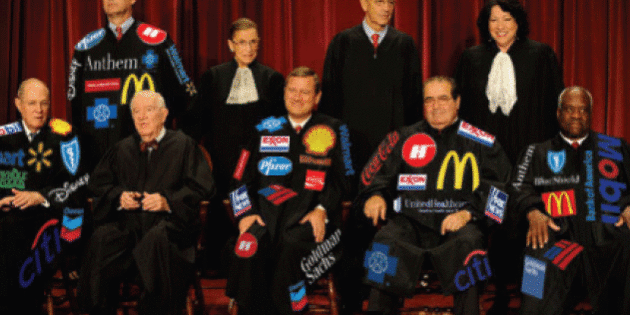Imagine if the United States Supreme Court ruled that certain people were “partial” employees, therefore not entitled to the full menu of worker rights, and then on the same day ruled that corporations – you know pieces of paper – had religious views that could be used to deny medical care to human beings that worked for them. Sounds far-fetched, right? There’s no way a court would give corporations more rights than people, right?
Wrong. Yesterday, the Supreme Court made two rulings that have me shaking my head.
“Partial Public Employees”
Using terminology that is way too-close-for-comfort to the 3/5ths language originally enshrined in the Constitution, Samuel Alito, writing for the majority, declared that home care workers are only partial public employees.
What the hell does that mean?
Home care workers are paid by states to perform care for those who want to stay at home when receiving long-term care. These workers had been overlooked, underpaid and underappreciated for too long. That’s why these workers organized unions across America to raise working standards, improve services and increase wages (which were often below minimum wage). In Michigan, home care workers had been unionized until the legislature took away their right to choose whether or not to unionize.
Despite these gains, anti-union forces have targeted home care and childcare workers’ right to organize state-by-state. This led to yesterday’s Harris v. Quinn decision. The court ruled that these workers – despite the fact that they are paid by the state, follow work rules set forth by the state, and have payroll taxes deducted – are partial public employees, creating a whole new class of workers that are expected to serve, but are not afforded worker rights.
In Harris v. Quinn, the court used its power to limit the rights of a group of workers. These workers just happen to be overwhelmingly female. It’s a sad day when we have a court that says that certain, living, breathing, humans have less rights than others.
The only thing that would make it worse would be to have a court grant more rights to non-humans.
The Right’s Hobby Horse
Have you ever been to church? I have. Have you ever seen a corporation there? I haven’t. The reason is that corporations are not people. The far right will argue that corporations are people because people work in corporations and since people are people and corporations are made up by people then corporations must be people too (take a quick break to let your head stop spinning.) Sounds ridiculous to me.
Sadly, the Robert’s court has defined itself by declaring that corporations do have rights. In the dubious Citizen’s United case, the court ruled that corporations should be able to make unlimited campaign contributions because “money is speech” and “corporations are people”.
Yesterday, they went even further ruling that corporations are also able to practice religion. The same author of the Harris v. Quinn decision, Sam Alito, can’t bring himself to recognize the rights of home care workers, but he declared that corporations have the right to impose their owner’s religious beliefs on women that work for them.
The Harris v. Quinn and Hobby Lobby rulings do have a common thread. In both cases, the court sided with corporations over people. In Harris, the court sided with corporate-controlled groups like National Right-to-Work to limit the power of unions. In Hobby Lobby, the court sided with corporations to limit the ability of women to make their own health decisions. Make no mistake, this Supreme Court has spent the last six years redefining our American tradition of “one man, one vote” towards a system that values articles of incorporation over actual human beings.
We’ve Been Here Before
The last time our country faced a financial crisis on the scale we faced with George W. Bush’s 2008 meltdown was during the Great Depression. In response, the country overwhelmingly elected Franklin Roosevelt who ran on the New Deal platform.
Once in office, FDR proposed and the legislature passed laws that guaranteed a minimum wage, combated child labor, and offered relief to struggling farmers. But, just like today, progress was thwarted by an out-of-touch, corporate-backed Supreme Court.
Eventually, President Roosevelt’s New Deal prevailed and the Supreme Court stopped blocking laws such as Social Security that are now part of our national fabric. It wasn’t because the members of the Supreme Court changed their mind. Rather, it was because FDR kept winning elections and as a result the Supreme Court changed its members.
Elections Matter
If you don’t like Supreme Court decisions that take rights away from workers while granting special rights to corporations, then voting is how you fight back (although I’m down for a good Hobby Lobby protest). While the Supreme Court is not on the ballot, the President who appoints justices and the Senators who confirm them are. This is why I’m an optimist, I believe that progress is hard, but in the end I also believe that voting is easy. Our challenge is to vote, drag our friends to the polls and keep fighting for true workplace and religious freedom.

